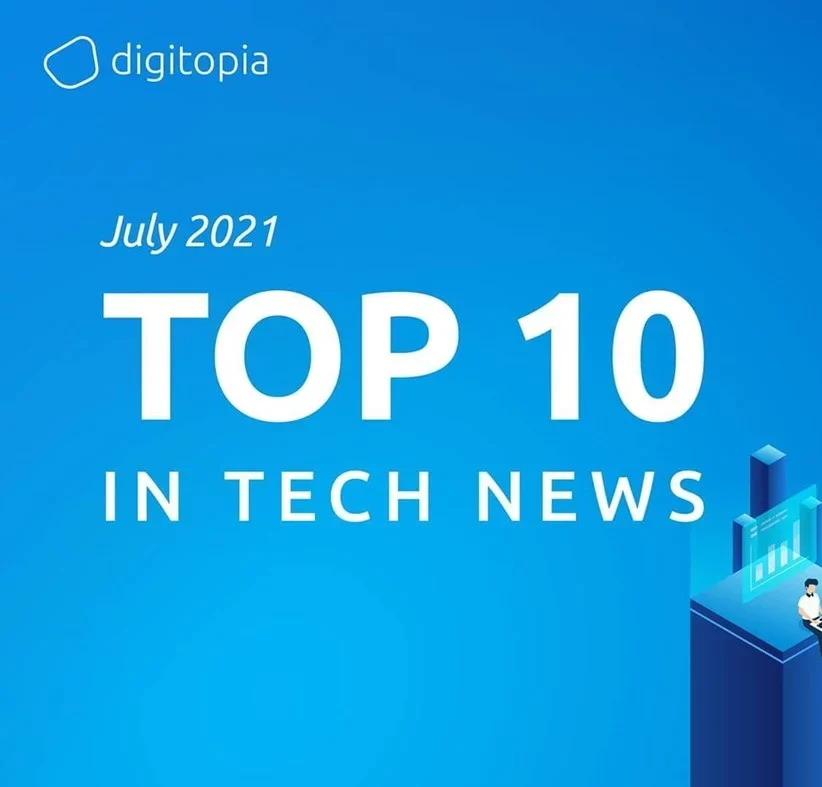
1. Microsoft Announces Windows 11, Generally Available by the Holidays
Take: Microsoft has officially announced its newest operating system, Windows 11, aiming to be the centre of customers’ digital life. Android apps will run on Windows 11 via partnership with the Amazon Appstore. Microsoft’s CEO Nadella draws comparison to tech giant competition, saying, “Today, the world needs a more open platform – one that allows apps to become platforms in their own right.”
2. Andreessen Horowitz Triples Down on Blockchain Startups with Massive $2.2 Billion Crypto Fund III
Take: While the market seems to be dying as big names pull out and hype moves on, a16z’s cryptocurrency division just announced a new fund of $2.2 billion dedicated to start-ups building blockchain projects. It will be the biggest special fund that is created by Horowitz. Analysts are skeptical of the impact of this fund to defend the bullish crypto market.
3. Instagram’s Newest Test Mixes ‘Suggested Posts’ into Feed to Keep You Scrolling
Take: Instagram is finally testing out personalized suggestions. Its latest experiment, “Suggested Posts”, will make algorithmic suggestions to keep you scrolling after you are “caught up” with or sprinkled before and after the content that you follow. The user will have the option to snooze or give feedback about the content, enabling learning for the algorithm. Instagram refused to comment on a plan to officially introduce this feature.
4. Tesla Shareholder Panasonic Sells Stake for $3.6 Billion
Take: The questionable dynamic of the partnership between Panasonic and Tesla is getting more distant as Panasonic sold its Tesla shares. Both parties stated that this will not affect the healthy partnership nor the battery supply. Panasonic made a $1.6 billion bet on building a joint battery factory with Tesla, however, the companies had their struggles given their cultural and visionary differences. Thus, the company wanted to distance itself from Tesla to not get affected directly by Tesla’s performance.
5. Amazon and Other Tech Giants Race to Buy Up Renewable Energy
Take: Big tech companies are committing to buy renewable energy at a certain price over long periods of time for their energy-hungry data centres, acting as a catalyst for the green energy revolution more effectively than the government subsidies. Amazon, Google, Facebook and Microsoft are four of the top six corporate buyers of publicly disclosed renewable-energy- purchase agreements, accounting for 30%, or 25.7 gigawatts, of the cumulative total from corporations globally, according to the research firm Bloomberg NEF.
6. Chip Shortages Are Starting to Hit Consumers. Higher Prices Are Likely
Take: Until this year, consumer electronics were always getting cheaper as market competition pushed companies to create products to address bigger markets. In such dynamics, the increase at the cost of any supply was usually absorbed by a member in the chain to retain the end-customer. However, the chip shortage came to a point where consumer electronics supply chains no longer deal with the costs, resulting in 8-10% higher prices for the end-consumer.
7. NASA Inches Closer to Printing Artificial Organs in Space
Take: Six years ago, NASA launched a competition called Vascular Tissue Challenge that aimed to accelerate regenerative medicine technologies. Recently, two teams came out to satisfy all the criteria to create thick, vascularized human organ tissue that could survive for 30 days, using different 3D printing technologies.
8. Spotify Acquires podcast discovery platform, Podz
Take: Spotify not only wants to be the leader of the music streaming, but also of the whole audio streaming. To address the rapidly growing podcast market, the company announced that “they are investing to build and scale the world’s best (and most personalized) podcast discovery experience.” For that, the company recently acquired Podz, a podcast discovery platform, and revealed a suite of tools and applications for podcast creators.
9. Alphabet’s Self-Driving Car Company Waymo Announces $2.5 Billion Investment Round
Take: The hype of autonomous vehicles was waning as the level of complexity and the pace of commercialization of the technology was realised. However, the $2.5 billion investment round for Waymo indicates that is not a lost cause, but still is reliant on the investors. The company has already deployed its autonomous vehicles in Phoenix as a ride-hailing service, but Waymo has a long way to go before individuals own and operate vehicles using its autonomous driving technology.
10. Autonomous Trucking Startup Embark to Go Public in $5.2B SPAC Deal
Take: Self-driving trucks start-up Embark Trucks Inc is going public by merging with a special purpose acquisition company in a deal valued at $5.2 billion. What’s important is that Embark takes a different approach to AV trucks. Embark offers its AV software as a service and carriers and fleets can pay a per-mile subscription fee to access it. Embark says that their system is platform agnostic and compatible with most of the manufacturers.
Digitopia’s Final Take
Factories, experiences, and even healthcare are enabled and augmented with digital technologies and delivered via digital channels. Mainframe computers, minicomputers, personal computers, enterprise applications, the internet, and then the mobile phone revolution, have changed basically everything. These capabilities have enabled new ways of delivery, distribution, management, and execution in every business model and industry.
The Platform Phenomenon all started with social media sites, which provided a platform where people can meet and exchange cat videos. Then, Uber and Airbnb transformed mobility and accommodation services when they jumped on the platform bandwagon. After that, it is the number of applications grew exponentially as more and more companies realised that digital capabilities held a wealth of business opportunities; providing various goods andservices bringing together providers and consumers at the best possible match. Frictionless processes, and instant gratification. Join the digital revolution.

